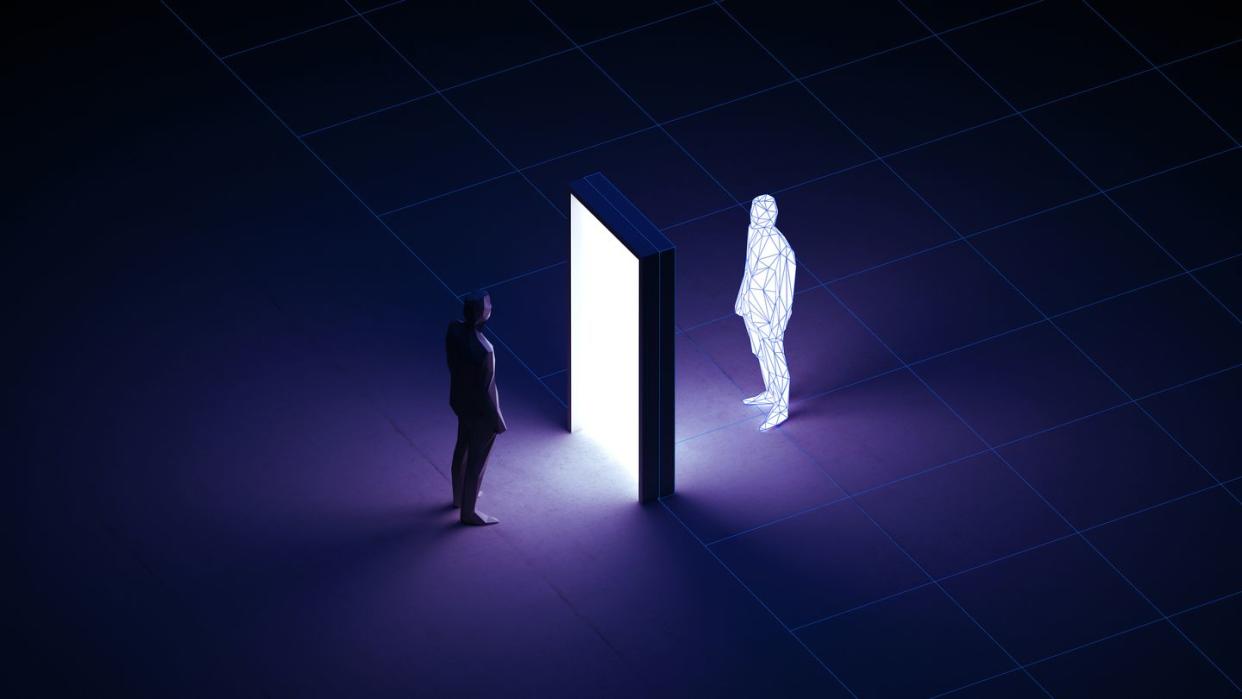A Scientist Says Humans Are Rapidly Approaching Singularity—and Plausible Immortality

- Oops!Something went wrong.Please try again later.
"Hearst Magazines and Yahoo may earn commission or revenue on some items through these links."
Futurist Raymond Kurzweil has a new book coming that spells out why he believes that nanorobots are the key to helping humans live significantly longer.
Kurzweil believes that the pursuit of human longevity centers on ensuring that our cells don’t pile up damage as they reproduce.
The MIT-educated futurist, known for pioneering computer-based learning technologies, believes that pairing artificial intelligence with biotechnology can lead to aging solutions that transcend what we can even comprehend.
For over five decades, futurist Raymond Kurzweil has shown a propensity for understanding how computers can change our world. Now he’s ready to anoint nanorobots as the key to allowing humans to transcend life’s ~120-year threshold.
As he wrote—both in the upcoming The Singularity is Nearer book (set for release on June 25) and in an essay published in Wired—the merging of biotechnology with artificial intelligence will lead to nanotechnology helping “overcome the limitations of our biological organs altogether.”
As our bodies accumulate errors when cells reproduce over and over, it invites damage. That damage can get repaired quickly by young bodies, but less so when age piles up.
“The only solution, longevity researchers argue, is to cure aging itself,” Kurzweil wrote. “In short, we need the ability to repair damage from aging at the level of individual cells and local tissues. There are a number of possibilities being explored for how to achieve this, but I believe the most promising ultimate solution is nanorobots.”
To put this in context, however, this is one man’s vision of the future. There is currently no technology even approaching what Kurzweil is predicting, nor is there any guarantee his vision will come to pass. But, there is also no guarantee that it won’t—eventually, anyway.
Kurzweil said he agrees with biomedical gerontologist Aubrey de Grey’s belief that the first person to live to 1,000 years has likely already been born. “If the nanotechnology of 2050 solves enough issues of aging for 100-year-olds to start living to 150, we’ll then have until 2100 to solve whatever new problems may crop up at that age,” Kurzweil said. “With AI playing a key role in research by then, progress during that time will be exponential.”
Kurzweil admits all these projections may sound “absurd” right now, but he believes that there are “solid reasons” to bear this out through medical nanorobots. He believes that diamondoid nanorobots with onboard sensors, manipulators, computers, communicators, and even power supplies could work in the human bloodstream at the size of a cell. Each body may require several hundred billion nanobots to repair and augment degrading organs.
“By monitoring the supply of these vital substances, adjusting their levels as needed, and maintain organ structures, nanobots can keep a person’s body in good health indefinitely,” he wrote. “Ultimately, nanobots will be able to replace biological organs altogether, if needed or desired.”
Not only does he envision the nanobots preserving normal functions and limiting the impact of aging, but he thinks they could create a more optimal human body.
“Once nanobots can selectively repair or destroy individual cells,” he said, “we will fully master our biology, and medicine will become the exact science it has long aspired to be.”
But living longer isn’t all that Kurzweil believes will happen thanks to technology. As the field of nanotech grows, the role of nanobots in human bodies will only mature with it, he claims. At some point, the body may become more than 99.9 percent nonbiological. He envisions a situation wherein technology is gaining complete control of DNA sequencing, AI’s ability to understand the human body fixes problems before the arise, nanocomputers control how our body functions by rewriting DNA and controlling cells, and (at some point) our blood and brain tissue get replaced by nanobots that connect us directly to the machines controlling us.
By the 2040s or 2050s, Kurzweil believes that we will have rebuilt our bodies and brains far beyond what we know today. “As nanotechnology takes off, we will be able to produce an optimized body at will,” he said. “We’ll be able to run much faster and long, swing and breathe under the ocean like fish, and even give ourselves working wings if we want them. We will think millions of times faster, but more importantly, we will not be dependent on the survival of any of our bodies for our selves to survive.”
Only time will tell if he’s right.
You Might Also Like

